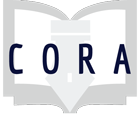(Thanks to Amanda Meeks at Northern Arizona University for sharing her insight into her development of an avatar-based method for promoting empathy in classrooms and for allowing their use in other learning spaces, including clinical settings.)
Assignments
As part of the research process, students need to learn how to organize and synthesize their sources. This short lecture, followed by a matrix outline given to every student, gives students the opportunity to focus their research question even more and to add their own ideas to the conversation of research within their chosen topic.
This lesson, created for English 2010, or Argumentative Writing, teaches students how to use library databases and keywords in order to focus their research topics. Most students come prepared with a general or broad topic in mind, but they need to narrow their focus in order to get more relevant search results. Here they simultaneously learn to search in and use the library databases and to focus their research topics.
During this activity, students work in small groups to explore assigned databases and then share back what they learn in a Google Doc projected at the front of the classroom.
In this lesson students view a series of short videos about searching library resources, interspersed with exercises in which they conduct searches on their topics and reflect on what they find and on the research process. (The first two videos and accompanying activities are done outside of class; the third can be done in class.)
This assignment is designed to encourage students in introductory-level religious studies classes to check the assumptions they bring to the subject matter and to develop their critical inquiry skills in this area through close examination of primary text passages. The primary textual sources used may be contemporary or historical, depending on the course context.
With a wealth of sources, archives offer numerous educational opportunities for students to enhance critical analysis, historical inquiry, and information literacy skills. This workshop demonstrates Research as Inquiry, as it guides students through the steps of initial inquiry with primary sources in archives: basic description, context investigation, and disciplinary questions. The Analyzing Archival Sources Worksheet is adaptable for instruction on physical and digital archives pertaining to local communities and urban development.
A two part instruction session that uses the "fish bowl" method, or students as instructors, to find scholarly sources and complete an annotated bibliography citation.
An introductory lesson to finding and understanding data in social sciences.
A 90 minute session with first year students in the School of Economics and Business Administration. Covered areas included overview of difficulties in searching and algorithm bias. Emphasis was on the importance to being critical consumers of information and understanding searches are not neutral.
